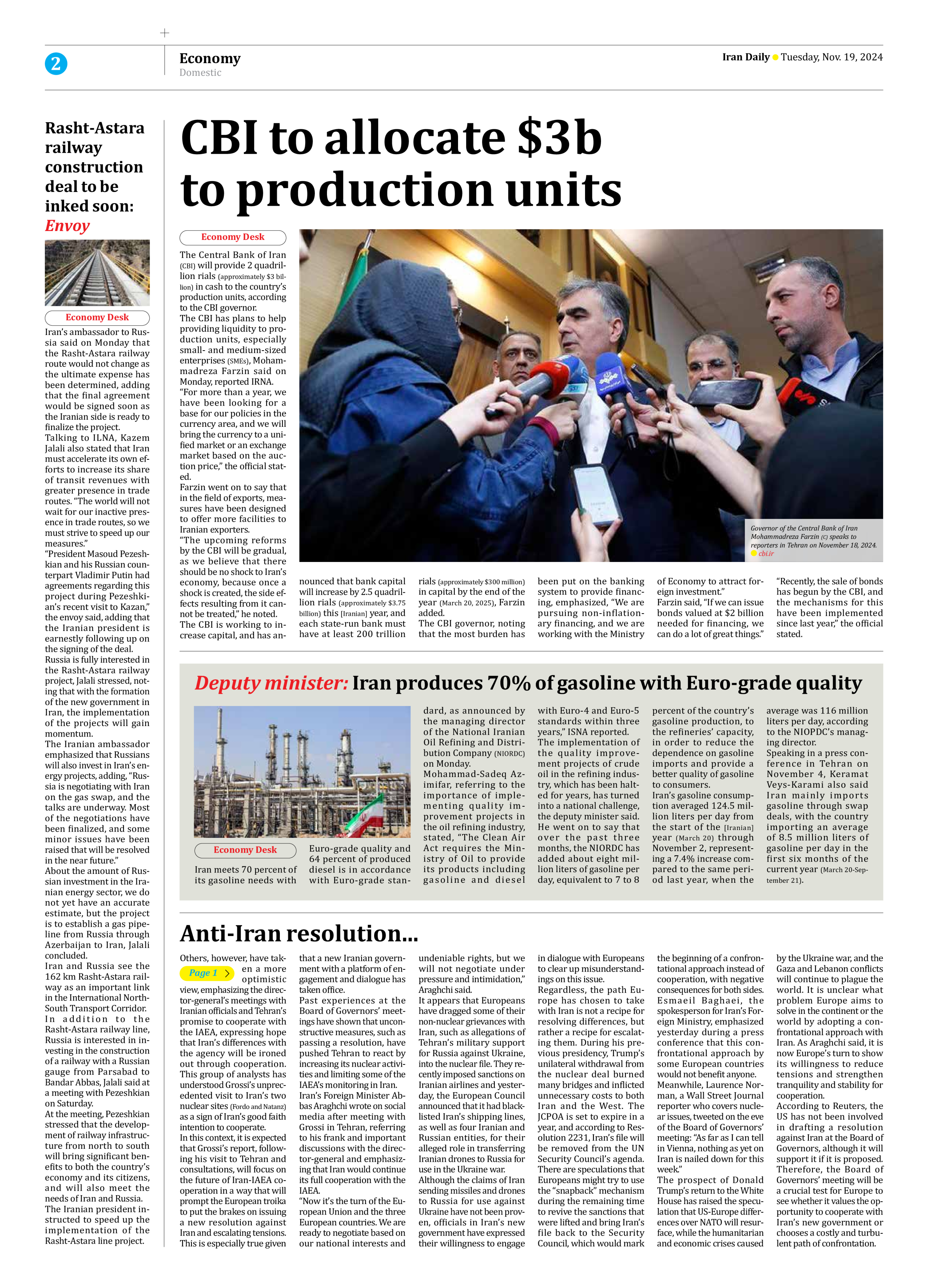
Anti-Iran resolution...
Page 1
Others, however, have taken a more optimistic view, emphasizing the director-general’s meetings with Iranian officials and Tehran’s promise to cooperate with the IAEA, expressing hope that Iran’s differences with the agency will be ironed out through cooperation. This group of analysts has understood Grossi’s unprecedented visit to Iran’s two nuclear sites (Fordo and Natanz) as a sign of Iran’s good faith intention to cooperate.
In this context, it is expected that Grossi’s report, following his visit to Tehran and consultations, will focus on the future of Iran-IAEA cooperation in a way that will prompt the European troika to put the brakes on issuing a new resolution against Iran and escalating tensions. This is especially true given that a new Iranian government with a platform of engagement and dialogue has taken office.
Past experiences at the Board of Governors’ meetings have shown that unconstructive measures, such as passing a resolution, have pushed Tehran to react by increasing its nuclear activities and limiting some of the IAEA’s monitoring in Iran.
Iran’s Foreign Minister Abbas Araghchi wrote on social media after meeting with Grossi in Tehran, referring to his frank and important discussions with the director-general and emphasizing that Iran would continue its full cooperation with the IAEA.
“Now it’s the turn of the European Union and the three European countries. We are ready to negotiate based on our national interests and undeniable rights, but we will not negotiate under pressure and intimidation,” Araghchi said.
It appears that Europeans have dragged some of their non-nuclear grievances with Iran, such as allegations of Tehran’s military support for Russia against Ukraine, into the nuclear file. They recently imposed sanctions on Iranian airlines and yesterday, the European Council announced that it had blacklisted Iran’s shipping lines, as well as four Iranian and Russian entities, for their alleged role in transferring Iranian drones to Russia for use in the Ukraine war.
Although the claims of Iran sending missiles and drones to Russia for use against Ukraine have not been proven, officials in Iran’s new government have expressed their willingness to engage in dialogue with Europeans to clear up misunderstandings on this issue.
Regardless, the path Europe has chosen to take with Iran is not a recipe for resolving differences, but rather a recipe for escalating them. During his previous presidency, Trump’s unilateral withdrawal from the nuclear deal burned many bridges and inflicted unnecessary costs to both Iran and the West. The JCPOA is set to expire in a year, and according to Resolution 2231, Iran’s file will be removed from the UN Security Council’s agenda. There are speculations that Europeans might try to use the “snapback” mechanism during the remaining time to revive the sanctions that were lifted and bring Iran’s file back to the Security Council, which would mark the beginning of a confrontational approach instead of cooperation, with negative consequences for both sides.
Esmaeil Baghaei, the spokesperson for Iran’s Foreign Ministry, emphasized yesterday during a press conference that this confrontational approach by some European countries would not benefit anyone.
Meanwhile, Laurence Norman, a Wall Street Journal reporter who covers nuclear issues, tweeted on the eve of the Board of Governors’ meeting: “As far as I can tell in Vienna, nothing as yet on Iran is nailed down for this week.”
The prospect of Donald Trump’s return to the White House has raised the speculation that US-Europe differences over NATO will resurface, while the humanitarian and economic crises caused by the Ukraine war, and the Gaza and Lebanon conflicts will continue to plague the world. It is unclear what problem Europe aims to solve in the continent or the world by adopting a confrontational approach with Iran. As Araghchi said, it is now Europe’s turn to show its willingness to reduce tensions and strengthen tranquility and stability for cooperation.
According to Reuters, the US has not been involved in drafting a resolution against Iran at the Board of Governors, although it will support it if it is proposed. Therefore, the Board of Governors’ meeting will be a crucial test for Europe to see whether it values the opportunity to cooperate with Iran’s new government or chooses a costly and turbulent path of confrontation.







